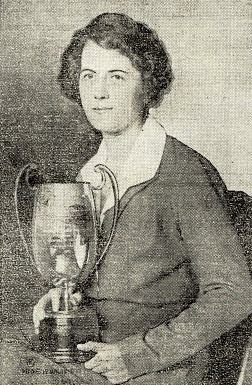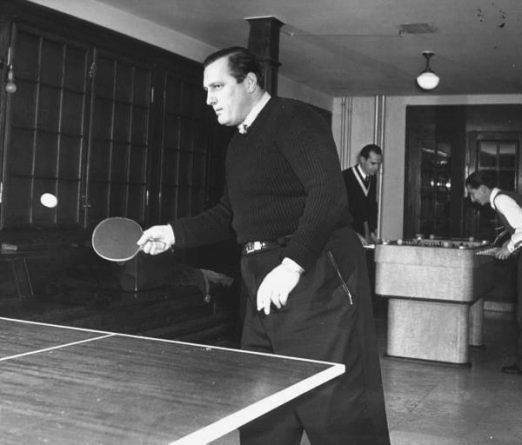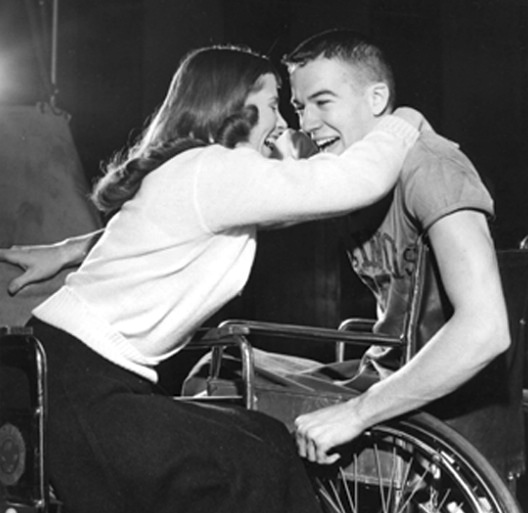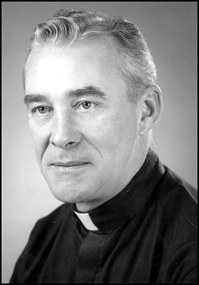A Letter to the Lab from Denis Conan Doyle

Sir Arthur Conan Doyle and J. B. Rhine were not friends. When J.B. and Louisa Rhine published a report in 1927 denouncing the medium Mina Crandon, (aka Margery) Doyle slammed them in the press. Only the year before Doyle and members of the British Psychic College had presented Mina with a silver cup that read, “in recognition of your heroic struggle for truth,” (pictured here) so he was not pleased with the Rhine’s conclusions.
Doyle came to Mina’s defense and attacked the Rhines in a New York Times piece. “Job was a hot-blooded and impetuous person compared to them.” Then, after characterizing the Rhine’s report as “colossal impertinence,” Doyle talked about Mina and her husband’s careful efforts to modify the controls of their work whenever objections were raised. “And now comes Dr. Rhine with his eagle eye, and on the strength of a single sitting he broadcasts the opinion that all these years of ceaseless labor and contention have been founded on senseless fraud, and all these sitters incompetent dupes.”
That was pretty much what the Rhines had concluded. So I was very surprised to find a friendly and admiring letter from Doyle’s son Denis to J. B. Rhine. It was written on November 19, 1940, ten years after his father had died, and it reads:
Dear Dr. Rhine,
I recently had the pleasure of reading some account of your profoundly interesting experiments in the realm of telepathy and thought transference. You are to be congratulated upon a painstaking, valuable and constructive contribution to human knowledge in this important field of research, which [is] as little understood as it is constantly misrepresented.
My own personal interest in the matter lies in the indirect connection which exists between your realm of research and my own, which is directed towards furthering the studies and experiments into demonstrable survival after death of my father, the late Sir Arthur Conan Doyle, and especially into the field of Universal Spiritual Law and its possible application to mundane affairs, both individual and international.
The immediate importance of your work, if I may say so, seems to me to lie in the irrefutable establishment of the mind as an entirely separate and distinct unit from the physical body, able to function independently of it. The importance of this basic fact is of course of overwhelming significance, since it forms the first fundamental step towards that infinitely comprehensive range of knowledge of the three-fold composition of Man—Body, Soul and Spirit.
I should welcome the opportunity of meeting you, as I believe there are many points of contact between our respective lines of research which I should like to discuss with you. Apart from that, it would be a pleasure to make your personal acquaintance.
Believe me,
Yours very truly,
Denis P. S. Conan DoyleP.S. I am at present on a lecture tour in this country, and I hope that my schedule may bring me in your direction.
This is a 1947 Life Magazine picture of Denis. Rhine’s November 23rd response follows.

Dear Mr. Doyle:
I am glad to make your acquaintance, having of course heard of you and having been at a strategic moment in my life considerably influenced by one of your father’s lectures.
What you say about the interests we have in common is entirely correct, and whatever differences there might be in other features this basic similarity of purpose should warrant our keeping in touch with each other.
Accordingly, if you are ever in this part of the country, as I hope you will be, I should be very glad if you would drop in to visit our Laboratory and talk over our fields of interest. If I am in New York, I shall look you up.
Sincerely yours,
J. B. Rhine
The Rhines were influenced by Sir Arthur Conan Doyle very early in their careers. They had attended a lecture of his while Louisa was in her third year at the University of Chicago (1922-1923). Their friends wouldn’t stop making fun of Doyle afterwards, but there was something about Doyle’s certainty that he had communicated with his dead son that impressed the Rhines. They didn’t know if his belief was justified either, but it reinforced their growing interest in subjecting psychic phenomena to rigorous scientific investigation.
Denis (and his brother Adrian) frequently lectured, promoting Spiritualism, but Denis sadly died in 1955, when he was only 46 years old.






